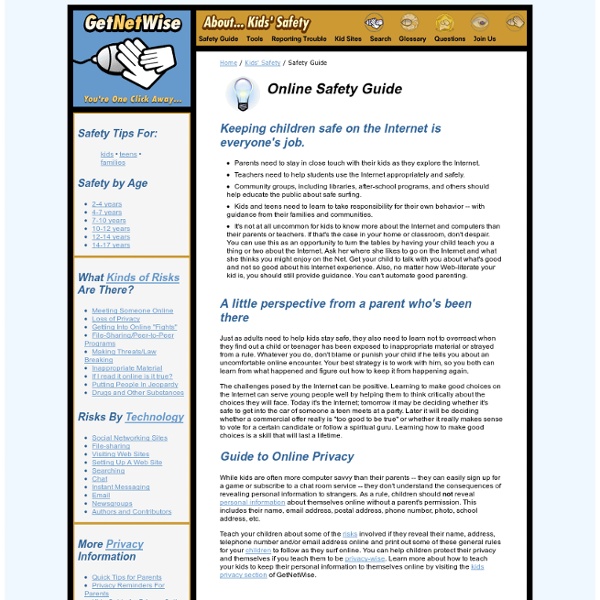Let's Stop Bullying: Advice for Young People
Let's stop Advice for Young People Nobody has the right to hurt other people by hitting them, kicking them, calling them names, spreading rumours about them or by doing anything else which is intended to be upsetting. Bullies try to justify their actions by saying that it is their victim's fault for being different. If this is happening to you tell yourself that it is not your fault, and that it is the bullies who need to change, not you. What To Do Talk to someone you can trust, a teacher, parent, older friend or relative.Be persistent. What Not To Do Don't try to deal with the problem on your own- there is nothing wrong in asking for help.Don't hit the bullies- you might end up being accused of bullying yourselfAlways tell the truth about what has happened. Adult Bullying Bullying is wrong whatever the age of the person who is bullying you. If this is happening at school you can talk to your parents. Working Together You do not have to be a victim to act. Getting Help
The Definitive Guide to Online Reputation Management
There are a lot of misconceptions about online reputation management. Some people think it’s just social media monitoring, while others believe it has something to do with public relations, and still others literally have no idea how it can impact business and sales. In this guide, I’m going to explain the role of online reputation management in today’s business and media landscape. Companies of every size can benefit from having a clear outline of its main concepts. They Are Talking About You Just a few years ago, the internet was very different. The situation has radically changed. No matter the size of your business, they (prospects, customers, clients…anyone and, potentially, everyone) are talking about you. If you think you can skip this, or if you think you can make it without taking into account people’s voices, opinions, and reviews, think again. The Transparency Risk One of the most recent business commandments is “Be transparent.” What does being “transparent” mean? 1. 2. 3. 4.
Cyber Bullying Part Two
If you have not yet done so, please read the first instalment of this two-part feature on cyber bullying. "There is a belief that cyber bullying isn't a big deal," says Justin Patchin, PhD, assistant professor of criminal justice in the department of political science at the University of Wisconsin, Eau Claire. "Like traditional bullying, it's seen as a rite of passage; something that everyone goes through." Dr. Dr. "There are similarities and differences with traditional bullies," says Michele Ybarra, PhD, a researcher at Internet Solutions for Kids, an American non-profit group exploring the phenomenon of cyber bullying. Dr. The anonymity and distance created by the internet and other modern technologies can have other effects. In addition to gender and age differences between traditional and cyber bullying, the nature of attacks are also different. Dr. What parents can do Dr. Dr. Dr. "It took several generations to realize that traditional bullying is bad," says Dr.
DOOMED TO REPEAT HISTORY? LESSONS FROM THE CRYPTO WARS OF THE 1990s
Below is the executive summary for "Doomed to Repeat History? Lessons From the Crypto Wars of the 1990s." Read the full paper here. In the past year, a conflict has erupted between technology companies, privacy advocates, and members of the U.S. law enforcement and intelligence communities over the right to use and distribute products that contain strong encryption technology. Encryption is a method by which two parties can communicate securely. The act that truly launched the Crypto Wars was the White House’s introduction of the “Clipper Chip” in 1993. Nonetheless, the idea that the government could find a palatable way to access the keys to encrypted communications lived on throughout the 1990s. While the domestic fight over key escrow wore on throughout the mid-1990s, another related battle was brewing on the international front over U.S. export controls and encryption technology. It seems like we may once again be on the verge of another war: a Crypto War 2.0.
Cybersecurity in K-12 education: Schools face increased risk of cyber attacks - Fedscoop
Editor’s Note: This is part 1 of a three-part series on cybersecurity in K-12 education. Part 2 will focus on the National Initiative for Cybersecurity Education. When Terry Van Zoeren came out of retirement this year to be interim superintendent at a New Jersey school district, he didn’t anticipate dealing with a cyber attack. But the 20-year administration veteran was forced into action in March when a savvy foreign hacker held the Swedesboro-Woolwich School District’s computer system for a ransom — making it impossible for kids at four elementary schools to take their online statewide tests as scheduled. “I hadn’t expected anything like this to happen,” Van Zoeren said in an interview last week with FedScoop. “It made us think really long and hard about the security necessary to make sure something like this is less likely to happen again.” There’s also the wealth of data that schools routinely collect on students and store on their servers, from attendance records to medical issues.
Computers, Freedom, and Privacy in a Networked Society (2010) -- the 20th annual CFP conference.



